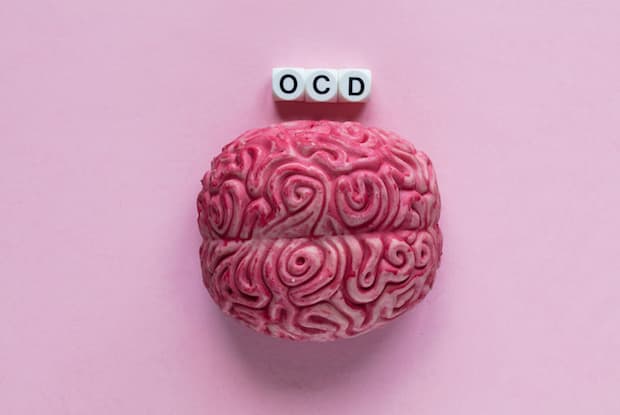Table of Contents
II. Types of obsessions and compulsions
d. Sexual orientation and relationship OCD
III. What these sub-types have in common
a. Exposure and response prevention
How OCD Works
When you think of obsessive-compulsive disorder (OCD), do you imagine someone obsessively washing their hands or having an exceptionally neat room? If so, you might want to reconsider your views. Contrary to popular belief, these behaviors don’t indicate that a person has OCD. In fact, a person with OCD can have an extremely messy room.
In reality, OCD is a very real and very painful mental illness that is common, yet frequently misunderstood by the public. Here is an introduction to get the facts straight.
First, we have to understand what makes OCD different from, say, regular tidiness. As you may have guessed, the condition features two distinct parts: obsessions and compulsions:
- Obsessions are pervasive thoughts, urges, or mental images that provoke intense anxiety.
- Compulsions are behaviors the OCD patient is urged to carry out in response to the obsession.
Everyone has obsessions and compulsions sometimes. What makes OCD different is the degree of distress these cause. According to the National Institute of Mental Health, OCD is marked by features like:
- Spending at least one hour a day engaging in obsessions and compulsions
- No enjoyment in said obsessions and compulsions; a healthy tidy person may actually enjoy cleaning and organizing
- Intrusive thoughts that can’t be resisted
- Significant impediment in daily life
Get savings updates for Your Medications
While things like order, symmetry, and cleanliness are indeed obsessions many OCD sufferers have, there are others that are more sinister. [1]
Types of Obsessions and Compulsions
To give you a better idea of the range of different obsessions that OCD can take, here is a list of some sub-types.
Please note, however, that these sub-types of OCD are not formally recognized by the psychiatric field. They’re just names to make it easier for patients with OCD to describe their symptoms, which can be wide-ranging.
a. Checking Obsessions
This sub-type involves a pervasive worry of something bad happening if you don’t double-check it enough. Such worry can be debilitating. A person may check their locks excessively enough that they’re always late for work. Another person may seem to be incompetent at work because they check and double-check everything they read and write, terrified of making a mistake and causing a disaster. [2]
People with harm-focused OCD are concerned with potentially harming others. They may have repeated, violent mental images, and they may feel urged to perform a compulsion so they don’t actually hurt anyone. These types of OCD sufferers may avoid driving for fear of hitting people or avoid caring for their kids for fear of attacking them. One type of harm-focused OCD — pedophilia OCD — is perhaps the most frightening: sufferers fear that they are attracted to and will abuse children. [3] Those with religious or scrupulous OCD are terrified that, unless they perform their compulsion, they will offend their god and bad things will happen. For the non-religious, the thought of not adhering to their morals is likewise extremely distressing.[4] Those with OCD focused on sexual orientation may be obsessed with the fear of being gay, or they may be gay and obsessed with the fear of not being gay. [2] On the other hand, people with relationship OCD constantly doubt whether their feelings for their partner are true. This, of course, can be distressing to both the OCD patient and the partner. Hearing “I’m not certain I love you” is definitely uncomfortable. [5] As you can see, OCD can be about many things. However, sufferers do share things in common. In most cases, OCD sufferers are aware that their worries don’t make sense or are overblown. Yet both the urge to obsess and the compulsion to act are so strong they can’t stop worrying. [6] Additionally, uncertainty intolerance is a large component of OCD. A person who repeatedly checks their writing may be 99% sure it’s written correctly, but are they really sure? People with OCD may repeatedly seek reassurance through their actions or by asking others. [7] Furthermore, people with OCD may have an inflated sense of responsibility. They feel it is their duty to perform the compulsion (to make sure nothing bad happens) and that not doing so is a moral disgrace. If you or somebody you love suffers from OCD, know that there are treatment methods available. One such treatment is exposure and response prevention (ERP) therapy. This treatment exposes the OCD patient to the thoughts, environment, and objects that trigger their anxiety. Then, the patient is challenged to ignore their compulsion. The purpose of ERP is to teach the patient to tolerate uncertainty. This is usually done in gradual steps, from triggers that cause only minor stress to more distressing triggers. [8] If ERP sounds intimidating, taking medication may help. Medications used to treat OCD are usually categorized under the SSRI class of antidepressants. [9] Compared to using antidepressants to treat depression, OCD typically requires a higher dose of medication, and medication may take eight to 12 weeks to work. If SSRIs are ineffective, patients may be treated with antipsychotics. [10] If you or someone you love suffers from symptoms of OCD, talk to your family doctor. Because it is so misunderstood, many people with OCD go for years, sometimes more than a decade, without treatment. What’s more, because they understand the irrationality of their worries, many people hide their OCD for fear of being labelled as crazy. But no matter your mental illness, everyone deserves help. [11] DISCLAIMER: The content in this article is intended for informational purposes only. This website does not provide medical advice. In all circumstances, you should always seek the advice of your physician and/or other qualified health professionals(s) for drug, medical condition, or treatment advice. The content provided on this website is not a substitute for professional medical advice, diagnosis or treatment.
b. Harm-Focused OCD
c. Religious/Scrupulous OCD
d. Sexual Orientation and Relationship OCD

What These Sub-Types Have in Common
Treatment
a. Exposure and Response Prevention

b. Medication
There is help
